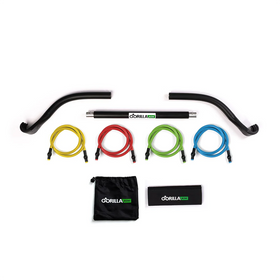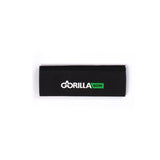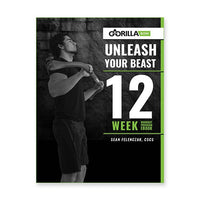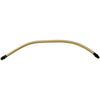When Is the Best Time to Eat Before a Workout?

Pre-workout nutrition is a crucial part of a balanced diet and training program. It’s vital to give your body the right fuel at the right time to enable productive exercise and full recovery.
What exactly is the best time to eat before a workout? What foods should you eat? What other factors might come into play? Here’s how to determine your ideal time for a pre-exercise meal so you can make the most of your fitness routine.
The Recommended Best Time to Eat
The best time to eat before a workout depends on many variables, but the general recommendation is three to four hours to allow for complete digestion. The meal will give you plenty of energy for a quality training session without making you feel bloated and sluggish.
However, like most things in life, the real answer isn’t that straightforward.
The timing of your pre-workout meal is just one piece of the puzzle. Here are 10 other factors you should consider when planning to eat before exercising.
1. Daily Schedule
Your daily schedule will largely determine when you eat before your workouts. Here’s when you should time your pre-workout meal based on when you exercise:
If you have the luxury of choosing your training times from day to day, plan to eat a big pre-workout meal and follow the four-hour rule. You should also keep your training times consistent to ensure a full recovery. For example, if you work out in the evening today, it doesn’t make sense to do so tomorrow morning. Try to exercise at about the same time every day.
2. Hydration
Hydration plays a significant role in digestion. Water promotes normal bowel function, preventing blockages and keeping the food moving through the digestive system. It’s also the most valuable energy source and far more important than any food.
If you drink plenty of water, you can eat six hours to one hour before your workout. A hydrated body can have a productive training session without the help of a recent meal. The American College of Sports Medicine recommends the following amounts:
- 2 to 3 cups of water two to three hours before the workout
- 1/2 to 1 cup of water every 15 to 20 minutes during the workout
- 2 to 3 cups of water after the workout for every pound of weight lost
A flavored sports drink or caffeinated beverage also makes for an adequate meal replacement. If you drink coffee or take a pre-workout supplement, you should have plenty of energy for a productive training session.
3. Sleep
A good night’s sleep can be a pre-workout meal in itself, especially if you exercise in the morning. You could eat below your caloric requirements and still power through a workout using the energy you stored overnight. Exercising on an empty stomach isn’t ideal, but it’s doable if you don’t have time to eat.
Your sleeping position is also surprisingly important for digestion. Lying on your left side is more comfortable for the digestive organs and helps stabilize stomach acid. If you take a nap before working out, be mindful of your positioning so your most recent meal can digest properly.
4. Stress Levels
Stress is another factor that affects digestion and gut health. You might want to eat your pre-workout meal earlier than usual if your stress levels are high. It takes more time for an anxious body to break down food and absorb nutrients, especially when still recovering from the previous workout.
Managing stress is a daunting task in the post-COVID world, but you shouldn’t let it interfere with your workouts. Exercise is supposed to be a stress reliever, after all. Be thankful that you have the time, energy and resources to improve your body.
5. Types of Food
The meal’s contents also determine the best time to eat before a workout. You can get away with a high-fiber meal one or two hours before exercising, but other foods are more stubborn:
- Fried food
- Spicy food
- Artificial sugar
- Citrus fruits
- Dairy
- Beans
Try your best to avoid these foods. If you have no other options, plan to eat your meal a little earlier. The best pre-workout foods are these simple sources of protein, carbohydrates and fats:
Bodies aren’t built to digest heavily processed foods with artificial ingredients. They crave food with natural ingredients. A balanced diet leads to optimal digestion, which paves the way for better workout performance.
6. Portion Sizes
You must control your portion sizes if following the recommended four-hour rule. A heavy meal can linger in your stomach for more than four hours, especially if it contains some of the aforementioned bad gut foods. Training on a full stomach often leads to sluggishness, nausea and vomiting.
Those worried about getting sick during exercise should stick to small pre-workout meals and snacks. For example, eating a banana with a scoop of peanut butter one or two hours before your workout is more than enough.
7. Experience Level
People who have been exercising for more than a few months can have much more flexible meal plans than beginners. Their bodies have adapted to training, so they can eat one hour before a workout without much issue. Those with minimal experience can try their luck but might end up in the bathroom stall before they’re done.
If you’re just starting your fitness journey, stick to eating pre-workout meals three to four hours beforehand. Let your body get used to the routine. Only change your meal timing when you feel 100% confident in the gym.
8. Workout Details
You need to consider your workout’s duration and intensity when timing each day’s pre-workout meal. For example, if you’re focusing on your legs today, you should follow the recommended three to four hours. Leg workouts are especially painful and exhausting, with their effects often lasting for days. Even experienced lifters sometimes feel nauseous when training their legs.
The same logic applies to workouts that include intense heavy movements, such as bench presses and deadlifts. You don’t want to try those exercises with food still digesting. Give yourself at least two hours.
Low-stress exercises like running, cycling and swimming might not be as intense, but they involve much more full-body movement. It’s best to have a light snack about an hour before these activities.
9. Post-Workout Meal
The post-workout meal is far more important than the pre-workout one. It’s essential for proper recovery and muscle growth. If you can’t fit both meals into your schedule and need to choose one, take the post-workout meal every time. A simple snack one or two hours before exercising will sustain you until the next meal without issue.
No workout is a complete waste of time, but training with insufficient post-workout nutrition is about as wasteful as you can get. Your body needs to refuel with protein and carbohydrates. It can’t recover from a grueling workout on its own.
10. Long-Term Goals
Your long-term goals should play into the timing of your pre-workout meal. If you want to build muscle, you need to spread out your protein intake throughout the day. Two to four hours between servings is the ideal pattern for muscle protein synthesis. As such, your pre-workout meal time might vary based on other times you eat.
If your goal is to lose weight, you might want to consume a low-calorie meal about an hour beforehand. The idea is to save more calories for your post-workout meal so you’re less hungry for the rest of the day. Some people take the opposite approach and have a big pre-workout meal to be more energetic during training. It’s up to your preferences.
Everybody Is Different
Everything depends on the individual. The four-hour rule is generally the most optimal time frame, but everybody is different. People have varying sleep schedules, food requirements, training programs and long-term goals that can affect their workouts. Find the time frame that works best for you and stick with it for optimal results.










Leave a comment